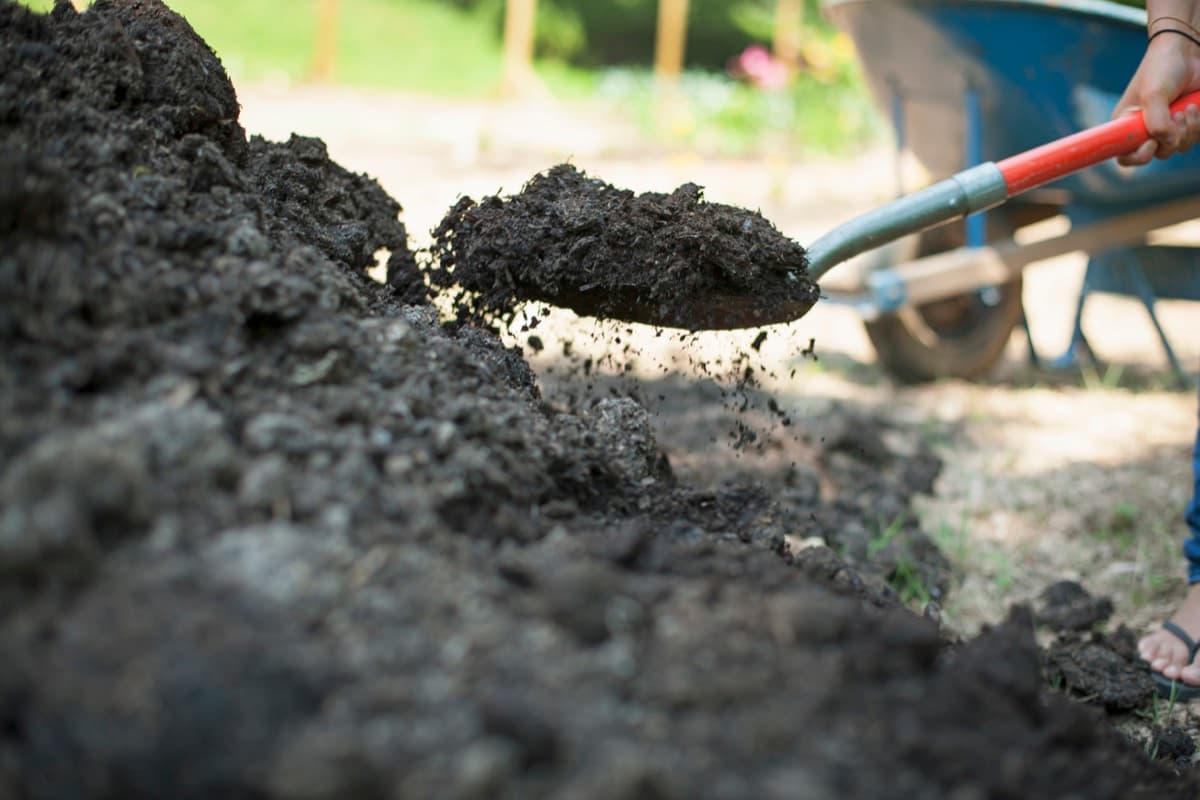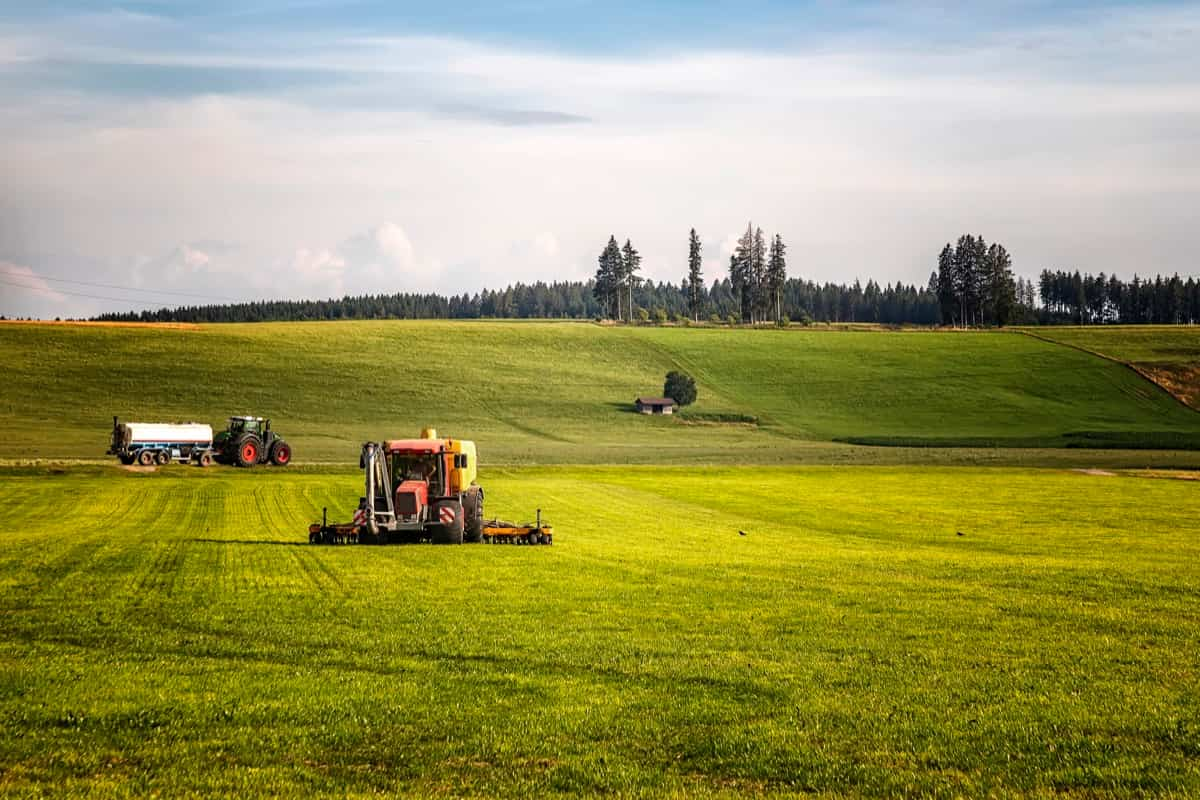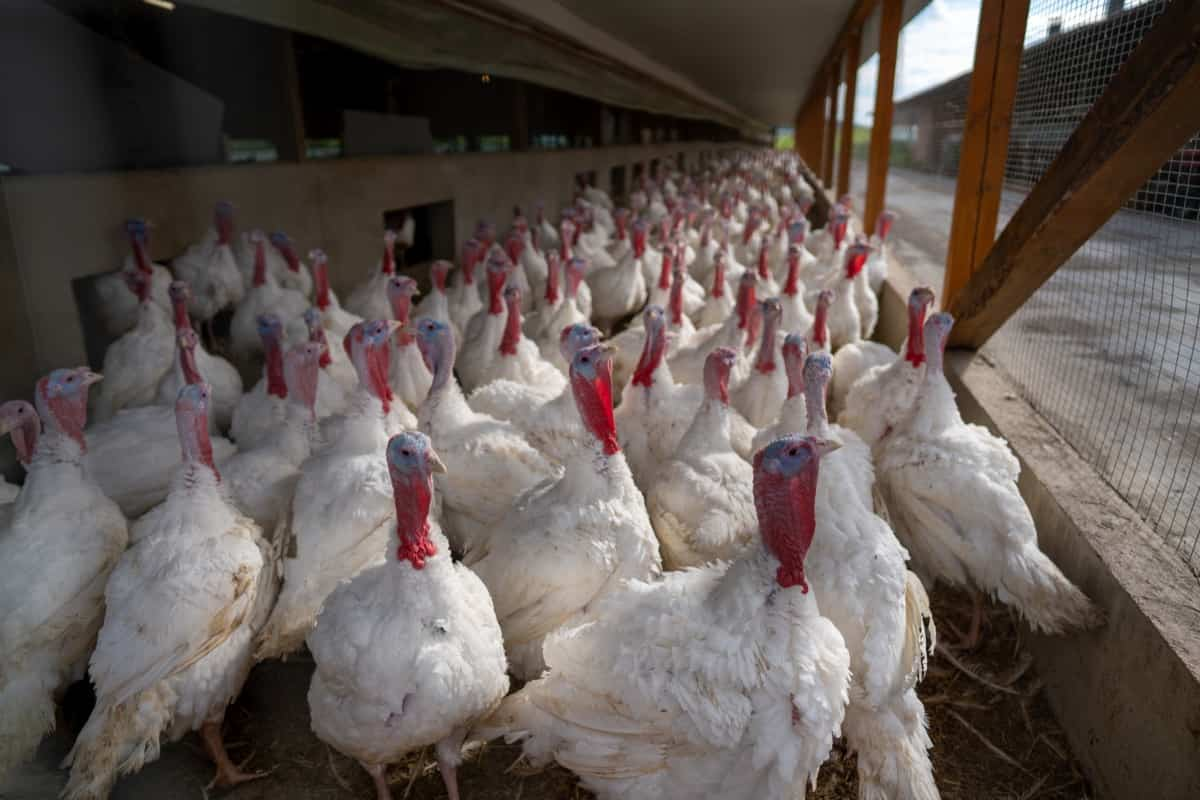Turkey manure is a notable organic fertilizer popular in the agricultural sector due to its superior nutrient-rich composition, essential for healthy crop growth and soil enhancement. This comprehensive article unravels the top 11 benefits of turkey manure fertilizer in agriculture. The discussion on “how much turkey manure per acre” will be addressed, as well as comparing the “turkey manure N-P-K” value with other manures, like chicken manure.

11 Benefits of Turkey Manure Fertilizer in Agriculture
Enhanced Soil Fertility
Turkey’s manure is highly appreciated in agriculture for its ability to enhance soil fertility significantly. It provides essential nutrients for plant growth, such as nitrogen, phosphorus, and potassium, commonly called N-P-K. When used appropriately, turkey manure can offer a higher N-P-K ratio compared to other manures, like chicken manure, making it a potent option for crops requiring high nutrient input.
It contains trace elements like calcium, magnesium, and sulfur, vital in supporting various plant physiological functions and promoting overall plant health. This immense nutritional profile results in more vibrant, healthy plants, which can contribute to higher crop yields.
Increased Organic Matter
The use of turkey manure fertilizer in agriculture is also associated with an increased concentration of organic matter in the soil. Organic matter is a critical component of healthy soil, providing structure and nutrient-holding capacity. The increase in organic matter results in healthier, more resilient soil capable of supporting a variety of crops. Turkey manure, rich in organic content, contributes significantly to soil organic matter buildup, improving the soil’s overall health and productivity.
Nutrient-rich Composition
One of the key advantages of turkey manure in agriculture is its nutrient-rich composition. It contains all the essential nutrients required for plant growth, including nitrogen, phosphorus, potassium, calcium, magnesium, and sulfur. This is often referred to as the “turkey manure N-P-K” value.
These nutrients are essential in promoting various physiological functions in plants, such as photosynthesis, protein synthesis, and energy production, contributing to healthier, more productive crops. It becomes a powerful tool for boosting crop yield and soil health when applied at the right rate, usually determined by the “how much turkey manure per acre” principle.
Slow-release Nutrient Release
Unlike synthetic fertilizers, which often release their nutrients rapidly and can lead to nutrient leaching, turkey manure offers a slow-release nutrient profile. This means that nutrients are gradually released into the soil, providing a steady supply of essential nutrients to crops over a prolonged period. This slow-release characteristic reduces the risk of nutrient leaching. It ensures that plants access nutrients throughout their growth cycle, contributing to healthier and more productive crops.
Improved Water Retention
Turkey manure offers a notable advantage by enhancing soil’s water-holding capacity. Organic matter from turkey manure can increase the soil’s capacity to hold and retain water, which is particularly beneficial in arid regions where water is scarce. Improved water retention ensures that plants have a consistent water supply, reducing the risk of plant stress due to water scarcity and promoting healthier, more resilient crops.
Reduced Reliance on Synthetic Fertilizers
Turkey manure offers a sustainable solution to reduce reliance on synthetic fertilizers. Its rich nutrient composition and slow-release properties provide crops with a steady supply of essential nutrients, reducing the need for synthetic fertilizers. Moreover, unlike synthetic fertilizers, which can contribute to environmental degradation, turkey manure is an environmentally friendly option that promotes sustainable agriculture.
In case you missed it: Top 10 Common Mistakes to Avoid in Turkey Farming

Enhanced Microbial Activity
In addition to its nutrient-rich composition, turkey manure is also known to enhance microbial activity in the soil. Microorganisms are crucial to soil health, contributing to nutrient cycling, decomposition of organic matter, and disease suppression. The organic matter in turkey manure provides a food source for these microorganisms, promoting their proliferation and activity, leading to healthier, more productive soil.
Reduced Soil Erosion
The application of turkey manure can also help to reduce soil erosion. The increased organic matter resulting from the application of turkey manure improves the soil structure, making it more resistant to erosion. This can be particularly beneficial in areas prone to high rainfall or wind erosion. By improving soil structure and stability, turkey manure helps preserve precious topsoil, ensuring it remains fertile and productive for future crops.
Increased Crop Yield
Given its numerous benefits, including enhanced soil fertility, nutrient-rich composition, and improved water retention, it’s no surprise that turkey manure can lead to increased crop yields. The steady supply of essential nutrients, coupled with improved soil health, provides an optimal environment for plant growth, leading to healthier, more productive crops. This translates into increased crop yield, contributing to farmers’ food security and income generation.
Sustainable Agricultural Practices
Last but not least, turkey manure promotes sustainable agricultural practices. It is a by-product of the turkey production industry, making it a readily available and sustainable resource. Its application in agriculture reduces reliance on synthetic fertilizers and contributes to waste management in the turkey production industry. The utilization of turkey manure in agriculture clearly demonstrates the circular economy concept, where waste products are used to generate value, promoting sustainability and environmental conservation.
Promotion of Bio-diversity
One more notable benefit of using turkey manure as a fertilizer in agriculture is its capacity to promote biodiversity. Biodiversity is crucial in an agricultural setting, as it helps maintain ecosystem balance, improve soil health, and enhance crop resilience. The rich organic content in turkey manure enriches the soil and creates a conducive environment for beneficial organisms, including earthworms, insects, and various soil microorganisms.
In case you missed it: Tomato Farming in Turkey: The Ultimate Guide to Tomato Production

These organisms play an instrumental role in the ecosystem, aiding in nutrient cycling, organic matter decomposition, pest control, and soil structure formation. By using turkey manure, farmers can foster a thriving and diverse biological community in their fields, leading to robust and sustainable agricultural systems.
Conclusion
Turkey manure offers many benefits in agriculture, ranging from enhanced soil fertility to increased crop yield and promotion of sustainable agricultural practices. Its nutrient-rich composition, slow-release nutrient properties, and other inherent benefits make it an ideal choice for farmers seeking to improve soil health, increase crop yield, and promote sustainable agriculture.
- Feed Your Flock for Less: Top 10 Tips to Save on Chicken Feed
- Ultimate Guide to Ossabaw Island Hog: Breeding, Raising, Diet, and Care
- Hatching Answers: The Top 10 Reasons Your Chickens Aren’t Laying Eggs
- Eggs and Economics: Breaking Down the Cost of Raising Backyard Chickens
- Defend Your Greens: Proven Methods to Keep Iguanas Out of Your Garden
- Ultimate Guide to Cinnamon Queen Chicken: A Comprehensive Guide for Beginners
- Ultimate Guide to California Tan Chicken: Breeding, Raising, Diet, Egg-Production and Care
- Ultimate Guide to Marsh Daisy Chicken: Breeding, Raising, Diet, and Care
- 10 Types of Chicken Farming Businesses You Can Start for Profits